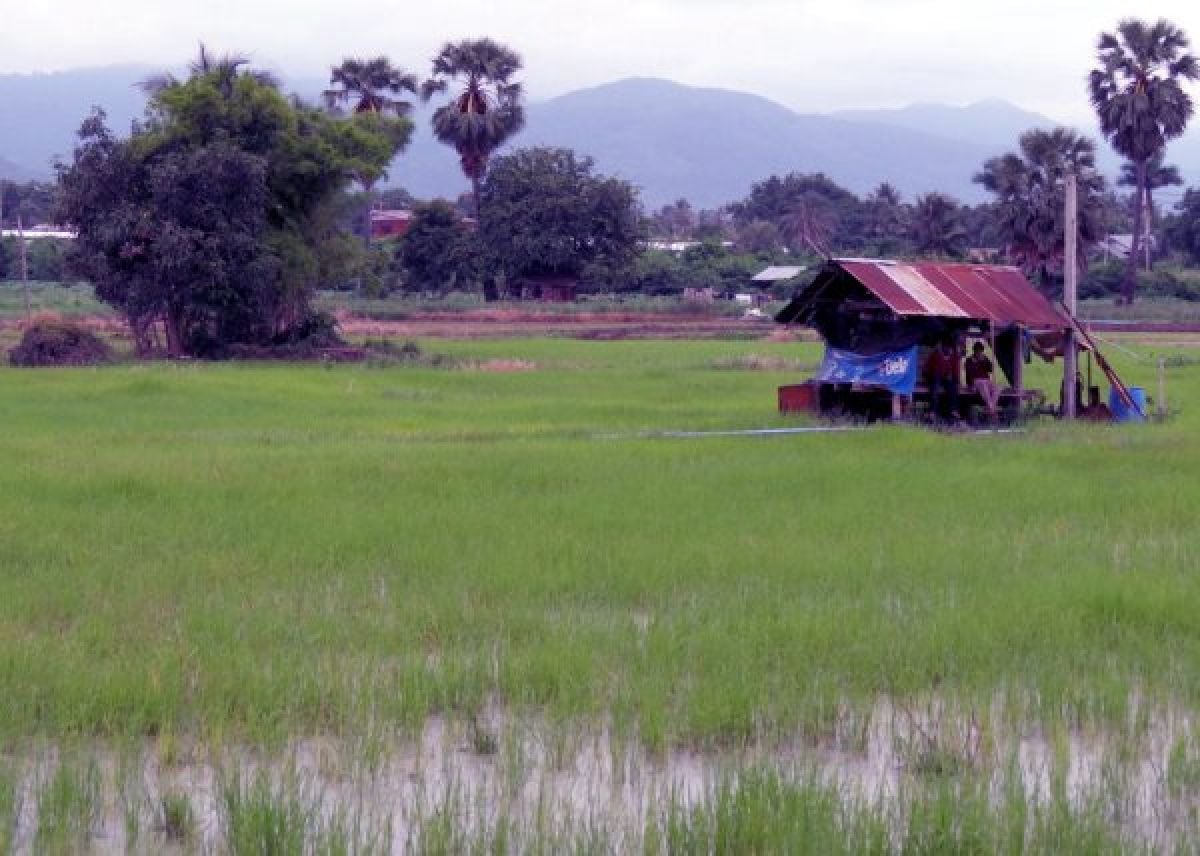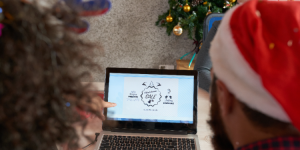
What are the factors that motivated you to move to Thailand?
I have always enjoyed traveling and fancied working outside the UK in sunny climes. Having visited Thailand a few times on holidays, I thought that might be a good place to start. So I set out my stall to teach English in Thailand, I did a TEFL course in Phuket the summer before I moved to enhance my teaching qualifications.
After the course I was offered a job in Prachuap Khiri Khan, but the agency let me down after I arrived in Thailand. Anyway, I soon realized that I had plenty of pension's income to live comfortably in Thailand and that I didn't need to work. So rather than look for work I settled down to retirement.
How long have you been living in Thailand? What is your current family situation?
I have lived in Thailand on and off since 2008. I have lived for three years in Prachuap Khiri Khan which is located on the Gulf of Thailand, about 300km from Bangkok and one year in Phitsanulok which is in Northern Thailand, between Bangkok and Chiang Mai. I spent the other year back in the UK for family reasons. I am married to a Thai national who is also a retired teacher.
What were the procedures to follow to get married to a Thai citizen? Did you face any difficulty?
The procedures for getting married in Thailand are straight forward if slightly bureaucratic. You need a paper from your embassy affirming you are free to marry and this needs translating into Thai. The translation then has to be certified at the Thai Ministry of Foreign Affairs in Bangkok. Of course each organization charges a fee.
Armed with your officially stamped freedom to marry document, the rest is plain sailing and a bit of an anti-climax. Present the document, with copies of our passport and your wife's Thai ID at your local Amphur (local authority) office. Sign a couple of papers, hand over 60 Baht and you are married. Alternatively (or also) you can have a Buddhist religious ceremony at your home complete with chanting monks.
The first procedure makes the marriage legal, recognized in Thai law, the latter doesn't but in both cases you are considered married.

What were the procedures you had to follow in order to settle in Thailand in terms of visa, permit, etc.?
As a retiree, I entered Thailand on a Non-O which I extend annually at Thai Immigration (inside Thailand). If you are married to a Thai there is also an annual marriage extension available. I chose to use the retirement extension route because it involves less paperwork. But I could get a marriage extension.
Visa extensions like retirement and marriage have monetary requirements attached to them. For example a retirement extension requires you to have either 800,000 Baht in a Thai bank, 2 months before the initial application (3 months on renewals), or 65,000 Baht a month income (from outside Thailand), or a combination of both.
Marriage extensions only require 400,000 in the bank or a monthly income of 40,000 Baht. There is no combined method for marriage extensions. You also have to report where you are living every 90 days, but this can be done by post in most cases.
What are the different steps for a British citizen to follow to be able to settle in Thailand? What is the length of the procedures?
To some extent I have already covered this above under the visa section. I haven't mentioned getting a Thai visa in the UK. You do this from a Thai embassy or consulate. I use the Royal Thai Consulate at Hull. They are very user friendly. You can download the forms you need to fill in from their website. They also tell you what evidence you will need to supply for the visa to be granted. This evidence varies depending which visa you require. It can include financial, medical and criminal record information. Like I say the website lists it quite clearly. You can submit the forms and receive the visa on the same day. There is also a postal service. Once you have a visa and a ticket then really it's all about how you intend to manage your affairs when you depart the UK.
As for banking, my advice is to retain a UK bank account (very useful if you have to return home) and a credit card for emergency use. Once in Thailand, set up a local bank account, you might have to shop around but Bangkok Bank for example rarely refuses anyone on an O visa. Unless you are working, your chances of getting a local credit card are low.
Medical insurance is another thing that needs to be considered. Thailand does not have a National Health Service that foreigners can use for free. If you are working you will have cover under Thai Social Security system. If not, then you need to be aware that you will be required to pay for all medical treatment you receive including emergencies. Full payment or a deposit is commonly required before treatment is commenced.
How did you find an accommodation in Thailand?
On my initial stay in Thailand, I firstly stayed in a hotel, then moved to an apart-hotel on a monthly rental and finally I bought a house on leased land because foreigners cannot own land in Thailand. On my current (second) stay here I am renting a two bedroom house in the countryside, it's a bargain at 3,500 baht a month. My wife and I own some land which we might build on in the future.
Although there are estate agents in Thailand, many Thai advertise their properties locally (sign in Thai outside the property) and by word of mouth, so you might need to ask around. Most of the stuff advertised on the Internet is really over-priced.
Has it been difficult for you to adapt to the Thai way of life?

The Thai culture is quite unique in many ways and the language is very difficult to start with. Many people do speak some English but it's not guaranteed. I can now speak and read Thai, not fluently in either case, but it makes a big difference and locals appreciate that you are trying.
Fortunately Thai people are in the main very laid back and friendly and willing to help where they can. However, do not expect the same standards of services that you would get in the UK or USA for example, in many ways Thailand is still a developing country.
What are the differences between the United Kingdom, your home country, and Thailand?
I could probably write an essay here. The countries have similar sized population but are poles apart in many ways. Thailand is developing, while the UK is an over developed nanny state type nation in my opinion. Sure I miss the English countryside on occasions and some traditional British stuff but I don't miss the weather or the petty health and safety regulations for example.
The cost of living here is lower than the UK, particularly good value rental properties and motoring costs. Food is also relatively cheap providing you avoid imports. Add to that very cheap public transport too. There are no local property taxes like council tax in the UK.
Why did you start your blog, Thailand blogs?
I originally started blogging in 2009, the blog was then called My Thai Friend. It was mostly personal stuff. I later changed the name to Thailand Blogs and adopted its current format which is more along the lines of a Thailand news and information portal. I enjoy writing so blogging is a good outlet. I also enjoy the research involved in getting informative articles right.
I pride myself in ensuring stuff on the likes of visas, getting a driving license and similar types of posts contain all the relevant info someone would need to do it themselves. I get lots of inquiries from expats, or folk thinking of becoming one, this inspired me to write and publish an e-book recently on retirement in Thailand. It's called Thailand Retirement Guide Essentials.
What advice would you like to give to people wishing to live in Thailand?
Think very carefully before you move to Thailand. Visit the country a few times before you make the move if you can. Travel around as much as you can. The regions vary considerably. Don't be dazzled by the bright lights and other attractions of the likes of Pattaya and Phuket. Living in Thailand is very different to visiting for a holiday.
Thailand is a great country with many beautiful places to live or visit, if you plan things properly it can make a great second home.



















